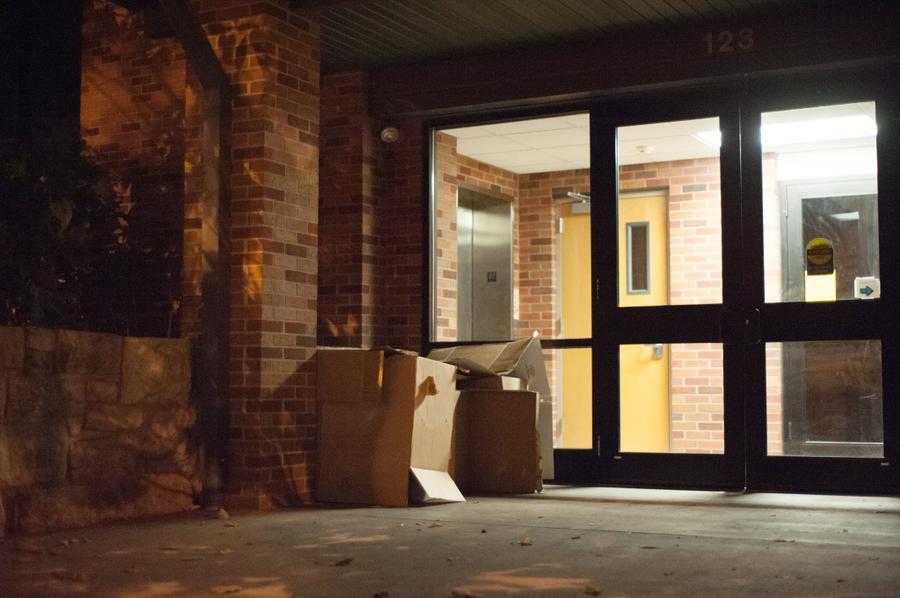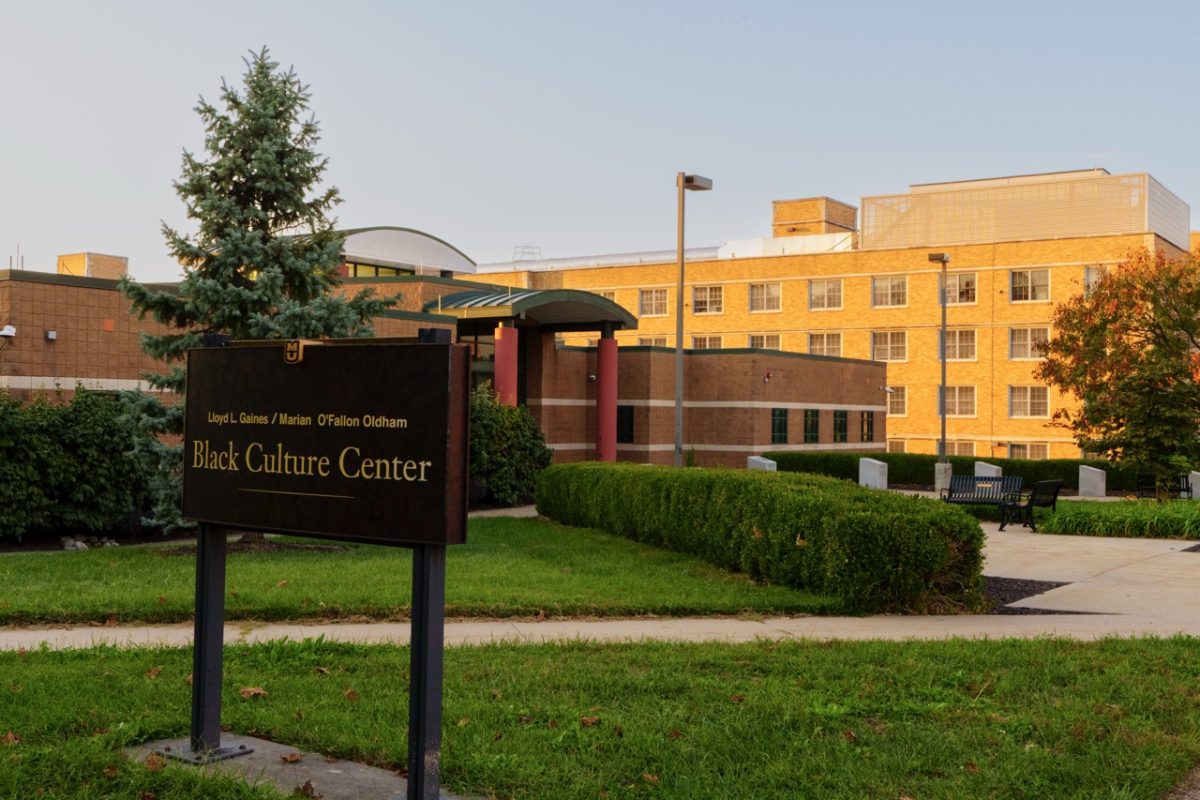_Dear reader,_
_A previous version of the Oct. 12 MOVE Magazine story “‘Big Hearts, Real Change’ falls short on both,” which appeared on The Maneater’s cover, claimed Jennifer Coffman is employed by The District. When the reporter conducted the interview, this was true. However, at press time, Coffman was no longer employed by The District, and is not currently. The reporter did not double-check prior to the article being published. Newer details about the Big Hearts, Real Change program also were not included in the article. Additionally, The Maneater and MOVE Magazine regret that we are unable to verify the accuracy of quotes attributed to Coffman in the story. Those quotes have been removed from the article._
_The Maneater has retracted the accompanying editorial, “Campaign to fight homelessness dehumanizes instead of helping,” which ran on Oct. 20. Its argument was primarily focused around comments from Coffman, as quoted the Oct. 12 story, “Big Hearts, Real Change falls short on both.” Our goal is never to cause harm, and the missteps in this story were not malicious. However, we recognize that unintentional mistakes can cause real-life damage. The Maneater apologizes for this situation._
_The Maneater is a learning paper, and we have high standards for journalistic integrity and procedure. The reporter did not double-check Coffman’s quotes, which is contrary to Maneater policy. The editors have been reprimanded and the reporter has been suspended. Moving forward, we will work to enforce our strict fact-checking policies and continue to diligently produce journalism that investigates and holds student government, university officials and community organizations accountable._
_-Jared Kaufman_
_Editor-in-Chief, The Maneater_
The signs are unmistakable.
“No home, no work.” “Down on my luck.” “Homeless and hungry.” “Hard times, need help.”
Similar-looking signs hang on the front of some storefronts downtown, except with a different message. The sign, printed on a cardboard-like background, says “It’s okay to say no.” The new initiative, “Big Hearts, Real Change,” is aimed at providing an alternative option to help Columbia’s homeless population. Instead of giving money to panhandlers, the program encourages people to make a call.
After someone calls and reports a person who looks in need of help, Phoenix Health Programs sends a counselor over to “personally assist” by helping with housing, jobs and paperwork.
“The outreach Phoenix phone has given the businesses downtown a number to call if they see someone in need of our assistance,” said Heather Jacobson, program manager at Phoenix Health, in an email. “This phone number has been quiet for the most part but is there for when it is needed.”
The program was enacted in early August. Big Hearts, Real Change aims to discourage panhandling and instead turn public donations toward health programs, rehabilitation and housing.
“Unfortunately, when we give a panhandler our change, we aren’t helping,” The Downtown Community Improvement District’s page about the program said. “Instead, our well-intentioned gifts can actually serve to keep them on the streets.”
The website for “Change for Columbia,” as it is alternatively called, offers some basic information on the goal of the program and how citizens can help. The page says to either call Phoenix Health or donate directly to the Columbia-Boone County Basic Needs Coalition.
The program’s official website features the slogan “Real change, not spare change” on its front page. It also has a list of facts about panhandling. Although these statements say that panhandling does not solve issues of homelessness, they offer no details to back it up.
The District’s page encourages people to donate money, but provides little information on where the money will go. The proceeds raised from its text-to-give campaign will go directly to the Basic Needs Coalition, an organization that aims to “assist the citizens of Columbia and Boone County, Missouri in meeting their basic needs for food, clothing, shelter, and transportation.”
The Basic Needs Coalition and Phoenix Health work together on the Big Hearts, Real Change campaign; however, they are separate organizations.
Phoenix Health, one of the organizations cooperating within this program, has its own website detailing what it does for people with drug and alcohol problems, but as of Tuesday, it listed no information on its involvement with Change for Columbia. However, Phoenix Health does offer several different types of services for people, including rehabilitation and housing.
“Our core programs are our residential/outpatient drug/alcohol rehabilitation center,” Jacobson wrote in the email. “Outside of those programs, we have housing, emergency services, case management, adolescent programs, SATOP, and veterans programs.”
The organizations work directly with individuals downtown who find it necessary to panhandle, Jacobson said. Their goal is to treat these individuals and then get them into housing.
A page on The District’s website offering information about the campaign urges people to ‘like’ the Big Hearts, Real Change Facebook page because they would have updates and success stories, but as of Tuesday, the page had not been updated since July 25. Several comments left on the Facebook page also criticize the program.
“Does anyone in this “project” actually know what it’s like to beg for money, and literally dig in trash cans for something to eat?” Columbia resident Torri Thrower wrote in a Facebook comment. “To sleep outside no matter the weather, because the shelters are full, or because you have a substance abuse problem that won’t allow you in the shelters? What if you have an animal companion because you are disabled, and you can’t bring that animal inside with you, because you can’t afford the paperwork, or can’t even get your disability in the first place?”
Other online critics call out the lack of concrete information and the fact that it seems like a “report the homeless program.” The wording of the posters that go up — “It’s okay to say no” — has also been called into question.
“You can’t get anything positive out of a negative statement,” said a homeless-by-choice traveler who calls herself Sparkledust.
As of Tuesday, none of the comments on the Big Hearts, Real Change Facebook page spoke positively about the program.
Despite criticisms, the program has had some early success, said Michael Trapp, former Phoenix Health director and current Second Ward councilman.
“It has been effective,” Trapp said. “I wasn’t sure if anyone would take up the offer for help. It takes time. You have to plant the seeds and open the opportunity up, even if it takes a while to see the results.”
The District and The Loop, a community improvement district for Business Loop 70, are working with Phoenix Health, Heart of Missouri United Way and the Basic Needs Coalition to try to provide help.
Downtown stores have differing opinions on the program. Business participation is indicated by a window poster that reads, “It’s okay to say no,” in large letters with red hearts around the edge. Stores that support the program accepted posters from The District.
“[The District] just went door-to-door and asked if people wanted the posters,” said Liza Babington, who runs Alpine Shop. “From what I understand, the city of Columbia is trying to be proactive and promote more responsibility with the issue, because generally giving money to the homeless doesn’t help.”
But some businesses disagree.
“I feel like it’s not really our place to tell a person to not give a homeless person money,” Slackers employee Will Smith said. “It felt to me like [The District was] trying to establish an us-and-them thing.”
Smith feels the city has not handled the program well and that different things could be done to help the homeless population.
“It seems super misguided,” Smith said. “I guess their hearts are in the right place, but I don’t know.”
According to Big Hearts, Real Change’s Facebook page, the program’s intention is to create “lasting help.”
_Edited by Katie Rosso and Bailey Sampson | [email protected] and [email protected]_








